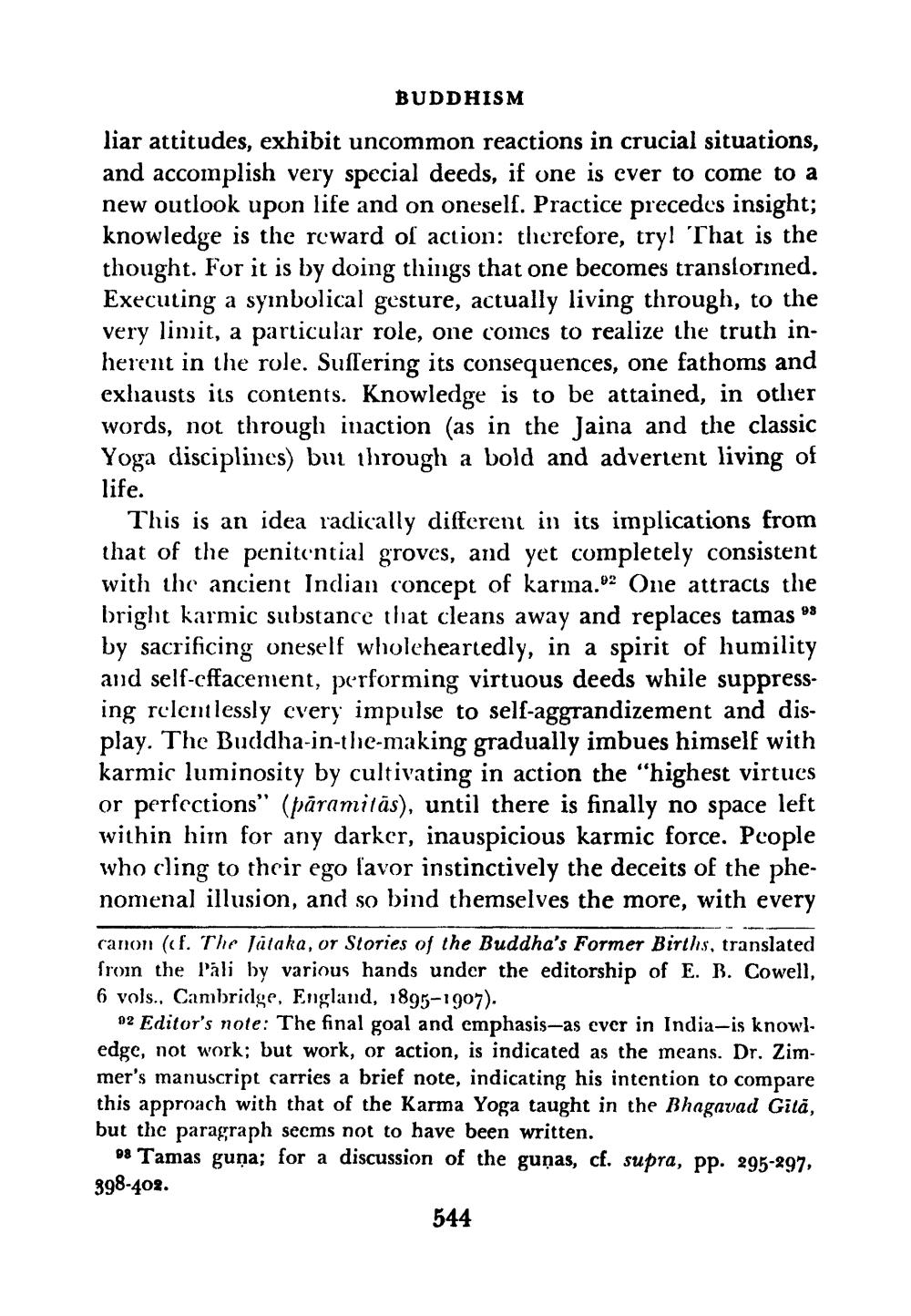________________
BUDDHISM
liar attitudes, exhibit uncommon reactions in crucial situations, and accomplish very special deeds, if one is ever to come to a new outlook upon life and on oneself. Practice precedes insight; knowledge is the reward of action: therefore, try! That is the thought. For it is by doing things that one becomes transformed. Executing a symbolical gesture, actually living through, to the very limit, a particular role, one comes to realize the truth inherent in the role. Suffering its consequences, one fathoms and exhausts its contents. Knowledge is to be attained, in other words, not through inaction (as in the Jaina and the classic Yoga disciplines) but through a bold and advertent living of
life.
93
This is an idea radically different in its implications from that of the penitential groves, and yet completely consistent with the ancient Indian concept of karma. One attracts the bright karmic substance that cleans away and replaces tamas by sacrificing oneself wholeheartedly, in a spirit of humility and self-effacement, performing virtuous deeds while suppressing relentlessly every impulse to self-aggrandizement and display. The Buddha-in-the-making gradually imbues himself with karmic luminosity by cultivating in action the "highest virtues or perfections" (pāramitās), until there is finally no space left within him for any darker, inauspicious karmic force. People who cling to their ego favor instinctively the deceits of the phenomenal illusion, and so bind themselves the more, with every
canon (cf. The Jataka, or Stories of the Buddha's Former Births, translated from the Pali by various hands under the editorship of E. B. Cowell, 6 vols., Cambridge, England, 1895-1907).
02 Editor's note: The final goal and emphasis-as ever in India-is knowledge, not work; but work, or action, is indicated as the means. Dr. Zimmer's manuscript carries a brief note, indicating his intention to compare this approach with that of the Karma Yoga taught in the Bhagavad Gitä, but the paragraph seems not to have been written.
98 Tamas guna; for a discussion of the gunas, cf. supra, pp. 295-297, 398-402.
544




